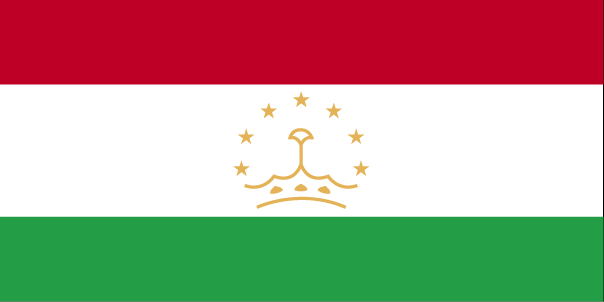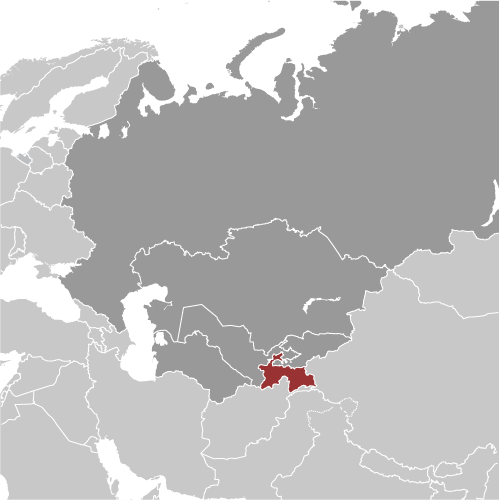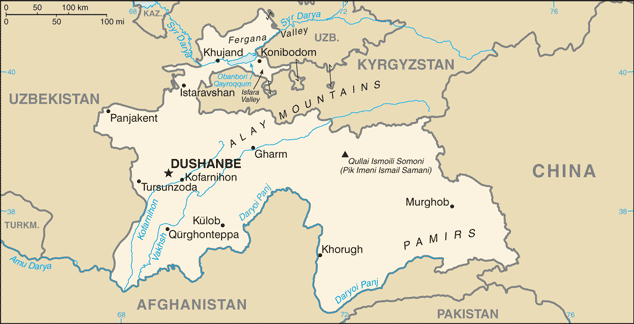The Tajik people came under Russian rule in the 1860s and 1870s, but Russia's hold on Central Asia weakened following the Revolution of 1917. Bolshevik control of the area was fiercely contested and not fully reestablished until 1925. Much of present-day Sughd province was transferred from the Uzbek SSR to the newly formed Tajik SSR in 1929. Ethnic Uzbeks form a substantial minority in Sughd province. Tajikistan became independent in 1991 following the breakup of the Soviet Union, and experienced a civil war between regional factions from 1992-97. There have been no major security incidents in recent years, although the country remains the poorest in the former Soviet sphere. Attention by the international community since the beginning of the NATO intervention in Afghanistan has brought increased economic development and security assistance, which could create jobs and strengthen stability in the long term. Tajikistan is in the early stages of seeking World Trade Organization membership and has joined NATO's Partnership for Peace.
Country Name
Conventional long form:Republic of Tajikistan
Conventional short form:Tajikistan
Local long form:Jumhurii Tojikiston
Local short form:Tojikiston
Former: Tajik Soviet Socialist Republic
Government Type
republic
Capital
Name:Dushanbe
Geographic coordinates:38 35 N, 68 48 E
Time difference:UTC+5 (10 hours ahead of Washington, DC during Standard Time)
Administrative divisions
2 provinces (viloyatho, singular - viloyat) and 1 autonomous province* (viloyati mukhtor); Viloyati Khatlon (Qurghonteppa), Viloyati Mukhtori Kuhistoni Badakhshon* [Gorno-Badakhshan] (Khorugh), Viloyati Sughd (Khujand)
note: the administrative center name follows in parentheses
Independence
9 September 1991 (from the Soviet Union)
National Holiday
Independence Day (or National Day), 9 September (1991)
Constitution
6 November 1994
Legal system
based on civil law system; no judicial review of legislative acts; has not accepted compulsory ICJ jurisdiction
Suffrage
18 years of age; universal
Executive branch
Chief of state:President Emomali RAHMON (since 6 November 1994; head of state and Supreme Assembly chairman since 19 November 1992)
Head of government: Prime Minister Oqil OQILOV (since 20 January 1999)
Cabinet:Council of Ministers appointed by the president, approved by the Supreme Assembly
(For more information visit the World Leaders website)
Elections:president elected by popular vote for a seven-year term (eligible for a second term); election last held on 6 November 2006 (next to be held in November 2013); prime minister appointed by the president
Election results:Emomali RAHMON reelected president; percent of vote - Emomali RAHMON 79.3%, Olimjon BOBOEV 6.2%, other 14.5%
Legislative branch
bicameral Supreme Assembly or Majlisi Oli consists of the National Assembly (upper chamber) or Majlisi Milliy (34 seats; 25 members selected by local deputies, 8 appointed by the president; 1 seat reserved for the former president; members serve five-year terms) and the Assembly of Representatives (lower chamber) or Majlisi Namoyandagon (63 seats; members elected by popular vote to serve five-year terms)
Elections:National Assembly - last held on 28 February 2010 (next to be held in February 2015); Assembly of Representatives - last held on 28 February 2010 (next to be held in February 2015)
Election results:National Assembly - percent of vote by party - NA; seats by party - NA; Assembly of Representatives - percent of vote by party - PDPT 71%, Islamic Revival Party 8.2%, CPT 7%, APT 5.1%, PER 5.1%, other 3.6%; seats by party - PDPT 55, Islamic Revival Party 2, CPT 2, APT 2, PER 2
Judicial branch
Supreme Court (judges are appointed by the president)
Political Parties and Leaders
Agrarian Party of Tajikistan or APT [Amir QARAQULOV]; Democratic Party or DPT [Mahmadruzi ISKANDAROV (imprisoned October 2005); Rahmatullo VALIYEV, deputy]; Islamic Revival Party [Muhiddin KABIRI]; Party of Economic Reform or PER [Olimjon BOBOEV]; People's Democratic Party of Tajikistan or PDPT [Emomali RAHMON]; Social Democratic Party or SDPT [Rahmatullo ZOYIROV]; Socialist Party or SPT [Mirhuseyn NARZIEV]; Tajik Communist Party or CPT [Shodi SHABDOLOV]
Political pressure groups and leaders
splinter parties recognized by the government but not by the base of the party: Democratic Party or DPT [Masud SOBIROV] (splintered from ISKANDAROV's DPT); Socialist Party or SPT [Abduhalim GHAFFOROV] (splintered from NARZIEV's SPT)
unregistered political parties: Agrarian Party [Hikmatullo NASREDDINOV]; Progressive Party [Sulton QUVVATOV]; Unity Party [Hikmatullo SAIDOV]
International organization participation
ADB, CICA, CIS, CSTO, EAEC, EAPC, EBRD, ECO, FAO, GCTU, IAEA, IBRD, ICAO, ICCt, ICRM, IDA, IDB, IFAD, IFC, IFRCS, ILO, IMF, Interpol, IOC, IOM, IPU, ISO (correspondent), ITSO, ITU, MIGA, NAM (observer), OIC, OPCW, OSCE, PFP, SCO, UN, UNCTAD, UNESCO, UNIDO, UNWTO, UPU, WCO, WFTU, WHO, WIPO, WMO, WTO (observer)
Diplomatic representation in the US
Chief of mission:Ambassador Abdujabbor SHIRINOV
Chancery:1005 New Hampshire Avenue NW, Washington, DC 20037
Telephone:[1] (202) 223-6090
FAX:[1] (202) 223-6091
Diplomatic representation from the US
Chief of mission:Ambassador Kenneth GROSS
Embassy:109-A Ismoili Somoni Avenue, Dushanbe 734019
Mailing address:7090 Dushanbe Place, Dulles, VA 20189
Telephone:[992] (37) 229-20-00
FAX:[992] (37) 229-20-50
Flag description
three horizontal stripes of red (top), a wider stripe of white, and green; a gold crown surmounted by seven gold, five-pointed stars is located in the center of the white stripe; red represents the sun, victory, and the unity of the nation, white stands for purity, cotton, and mountain snows, while green is the color of Islam and the bounty of nature; the crown symbolizes the Tajik people; the seven stars signify the Tajik magic word "seven" - a symbol of perfection and the embodiment of happiness










